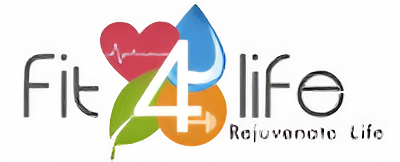We all are familiar with phrases – “This is stressful” and “I am stressed”. In fact, many of us experience it very often! Well, it is not common but do you know what exactly happens when you are stressed and how to deal with it. Read on here.
What is stress?
Stress is a natural feeling of not being able to cope with specific demands and events. Interestingly, there is no medical definition to describe it and experts often disagree over whether stress is the cause of problems or the result of them. But whatever might be the definition is, one has to learn to deal with it.
Causes of stress:
- Family issues
- Illness
- Lack of time
- Deadlines at work
- Relationships, marriage and divorce
- Excessive noise
- Abortion
- Driving in heavy traffic
- Fear of crime
- Uncertainty
And the list never seems to end.
Symptoms of stress:
- Frustration
- Feeling overwhelmed
- Headaches
- Insomnia
- Grinding teeth
- Nervousness
- Racing thoughts
- Poor judgement
- Worrying
- Changes in appetite
- Procrastination
- Mental health problems – depression, anxiety and others
- Obesity and eating disorders
- Sexual dysfunction
- Menstrual problems
- Low energy
- Upset stomach
- Dry mouth and difficulty in swallowing
- Feeling lonely and worthless
- Avoiding company of others
What exactly happens?
What our bodies are not equipped to deal with is intermittent stress which is wrongly called chronic stress. When you are stressed, two systems respond to it –
- Hormonal System by releasing Cortisol
- Nervous system by releasing noradrenalin
When stress occurs, the nervous system kicks in within seconds and also ceases equally fast after the stressor is over. On the other hand, cortisol is released well after the stressor sets in and also it lingers on for a while after the stress is over. If another stressor occurs, before the cessation of cortisol, body continues in the stress mode which means chronic elevation of cortisol. This is not what body is designed for, and this occurs mostly due to anger and ego. Examples of this are getting irked at red signal or expressing anger at a vehicle that overtakes you.
And, if we appreciate the ill-effects of chronic high cortisol levels, some of which are listed below, probably we will appreciate the truth in the adage – “Anger is like a eating a rat poison and expecting the rat to die”.
Ill-effects of chronic elevation of Cortisol:
- Disrupts the reproductive system, which means less testosterone and this has negative effects on training and fitness goals, besides conception problems.
- Interferes with the production of thyroid hormones and also leads to less calorie burn.
- Plays havoc with Digestive System by shutting it, reducing the assimilation of nutrients and also increasing the craving for comfort foods.
How to manage stress?
- Reduce the intake of alcohol, caffeine and drugs
- Get some exercise
- Manage time
- Prioritise the work
- Talk to family, friends and colleagues
- Meditate and relax
Here’s how professionals can help:
Noticing signs and symptoms is the first step to taking action. And, remember to always talk to a doctor and help someone to talk to a doctor if he/she is feeling overwhelmed. The doctor or therapist can evaluate the person’s situation better and can help to handle the stress in the best way possible.


